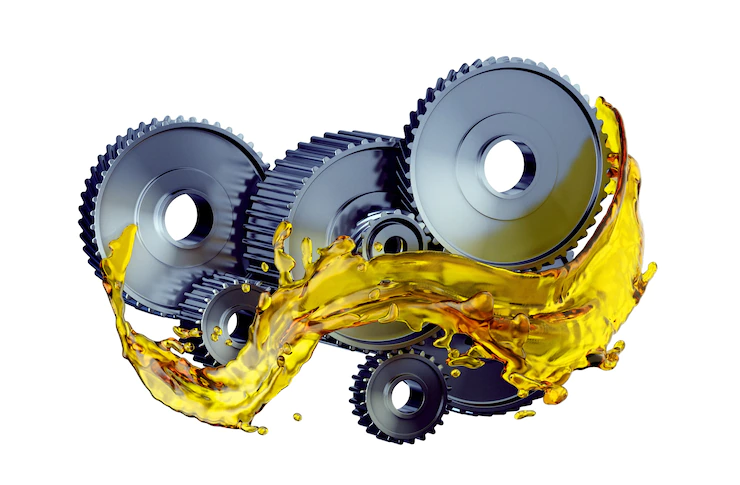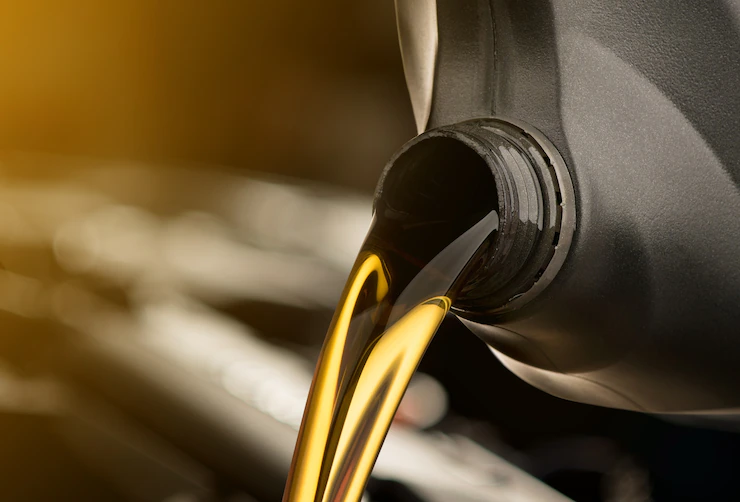
There are many different types of engine oil on the market. It can get confusing as to which one to get because they come in a variety of brands, weights, and quantities.
Which one will be right for you? Your car’s owner’s manual gives you a lot of pertinent information, but they don’t always tell you what kind of oil you need to use for your vehicle.
The oil you use is a vital component of your engine’s life. This article will look at understanding the different types of engine oil that you need to use.
Oil Types:
It can get a little daunting when you are in the motor engine oil aisle and are bombarded by many kinds of engine oil.
Where do you start? Let’s begin by explaining the category of each engine oil. They are synthetic, conventional, high-mileage, and synthetic blends. This should help you make an informed decision about which oil is the correct one for your automobile.
1. Synthetic

Engine oil classified as a full synthetic is lab or factory manufactured only. This engine oil has strict guidelines and rules when it comes to the materials that are used in making it. This means synthetic oils are cleaner concerning impurities and superior to your engine. However, if you want a better oil, it will cost you more money than the conventional kind.
On average, for an oil change, anticipate spending an additional twenty to forty dollars if you use synthetic oil. The price will also be determined by how much oil your car takes at one time. The great thing is that this class of oil usually runs longer in your vehicle before you require changing it.
2. Conventional
This is the regular and classic engine oil for your vehicle. It’s made by pulling crude oil out of the ground and then cultivating it in a manufacturing factory. Ingredients are added to it to make it thicker, and then it’s packaged and sold at a store or auto shop.
A positive factor for using conventional oil is its price tag. It doesn’t cost a lot to keep your engine going strong and your vehicle running without any issues.
All engine oil can work well in your vehicle, giving you the correct quantity and weight for your engine. The only negative to using conventional oil is since it’s made from natural elements and materials, the oil isn’t as pure and refined as other oils on the market and won’t protect your engine as well.
3. High-Mileage

This type of engine oil is special because it has supplemental material in its formula that has been created to protect your engine and guard against oil evaporation. It works harder, giving a better, complete, and more efficient engine performance.
A vehicle that has a high number when it comes to the odometer should use high-mileage oil because it helps with the burn-off of engine oil, the wear and tear of your engine, and the overall life cycle of your motor. Experts suggest that if your odometer is over seventy-five thousand miles, you should put high-mileage engine oil in your vehicle.
4. Synthetic Blend
This oil is made up of a combination of natural and synthetic materials, a mixture of conventional and synthetic oil. This hybrid has positive and negative aspects to it. It doesn’t perform as well as wholly synthetic oil but gives you improved safety and dependability over conventional oil.
They last for more time but not the total capacity of a synthetic one. They are also more costly than the traditional type, but it rings in cheaper than the utterly synthetic oil. It’s considered a happy medium for people who don’t want to spend too much money but are trying to give their vehicle a performance boost.
5. Oil Grades

Grades for engine oil help you figure out the thickness and how it does with temperature. Let’s break down the oil grade code, so it’s straightforward to understand. In this example, we will use 20W-40.
The beginning number is followed by the letter “W.” This letter represents Winter and how the engine oil will respond to starting your vehicle in cold weather. The number “20” before the letter “W” specifies how the engine oil will stream in such cold climates.
Smaller numbers will flow easier than more significant numbers, so a 10W-40 will be better in the cold than a 20W-40. The following number represents how the engine oil will stream at normal temperatures. The “40” in this example will not flow as smoothly as a lower number would in regular operating temperatures.
There is ample auto mechanics, creating a competitive marketplace for things like oil changes. A brilliant and innovative way they advertise their business while informing the customer of their next oil change is using custom oil change stickers and printers. These stickers are custom printed with the shop’s name on it and can be conveniently placed in the upper left-hand corner of the windshield after the oil change has been completed.
The stickers have space on them to write the number of miles and when the next oil change is due. This is fantastic for encouraging repeat business in an aggressive industry where every auto shop vies for attention.
If you are in the automotive service business, you can buy custom oil change stickers and printers from MBR Marketing at https://mbrmarketing.com/service-department/oil-change-stickers-and-printers.
What Engine Oil To Use?
The engine oil’s thickness changes depending on whether it’s cooled or heated. The thinner engine oil will work better for your motor if you live in an area with colder temperatures. If the engine oil is too thick, you will have a more difficult time starting up your engine, which negatively impacts your gas mileage.
There isn’t just one single brand of oil that will fit all vehicle owners and driving conditions. What will work best for your vehicle will depend on where you live, your style of driving, if you haul a heavy or light load, and the brand of car that you drive.
Now that you know and understand the different types of engine oils better, you are well-equipped to pick the right engine oil for your vehicle. However, if you still have questions about your engine oil, ask an auto expert, and they can help narrow down the best oil for you and your vehicle.
Read Also:




























